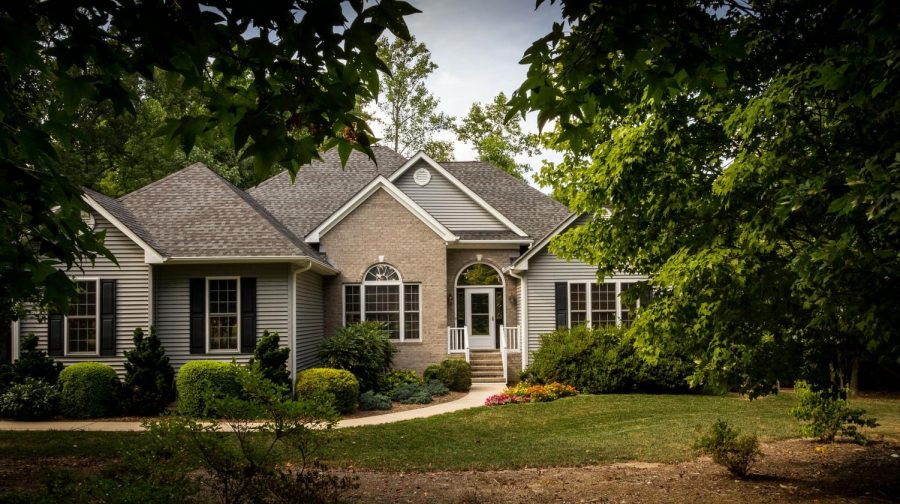Proposition 19 may be one of the more complicated choices for voters in the upcoming election.
The official “YesOn19” campaign, supported by numerous organizations and elected officials, including Gov. Gavin Newson, has aimed its advertisements at helping wildfire victims by preventing their property tax rate from rising when rebuilding or moving into a new home. It also closes the “Lebowski Loophole” that takes hundreds of millions away from local governments every year.
There is, however, significantly more to the proposition than what it seems at surface level.
“It’s probably the most complicated ballot measure,” said Santa Rosa City Councilmember Chris Rogers, who favors the proposition, but agrees it has a loaded nature.
The proposition looks to “fix” the landmark 1978 Proposition 13, which decreased the property tax rate for California homes, essentially freezing them if ownership stayed the same or if the homes were inherited. Proposition 13 — voted through by a significant majority — has had a lasting impact over the decades since its passing.
This makes any changes quite difficult to accomplish.
“[Proposition 19] is a band-aid on a broken system,” Rogers said. “A full overhaul of Prop. 13 could fix the issues, but that’s not what this is once something is passed, it’s near impossible for the legislature to ever fix any laws or loopholes. The only remedy is to go back to and ask the voters.”
This is not the first attempt to “fix” Proposition 13 that has appeared on the ballot. In 2018, a majority of voters rejected Proposition 5, which aimed to do something similar to one of the initiates of Proposition 19.
Currently, eligible homeowners, seniors 55 and older who benefit from the low property taxes of Proposition 13, are able to transfer the property tax rate to another home across only 10 of the 58 counties in the state. This discourages seniors from downsizing, which has contributed to California’s current housing crisis.
Proposition 19, identical to Proposition 5 just two years ago, would expand these property tax transfers to every county in the state and disallow counties from opting out. It would also allow seniors to now do this transfer three times, not just once, and to buy more expensive homes as well.
“Seniors being able to downsize is significant,” Rogers said. “Because we’re in a housing crisis, there’s a net benefit to them being not afraid to move around.”
Opponents to this aspect of the proposition argue that this proposition would make it even more difficult for first-time buyers or those wanting to stay in the state but move, to find affordable homes in the state; just look at the trend of California residents moving out due to the high cost of living. They would now be competing with older generations who are more wealthy and less likely to be in debt.
“If I was trying to buy a home, I wouldn’t have the generational wealth, and would be competing with my grandma, who is in her 70s and has no debt. She would be in the advantage,” Rogers said.
KQED reporter Joe Fitzgerald Rodriguez further explained this argument on the “Bay Curious” podcast.
“The argument was that this exacerbates inequality and helps an already-helped group, which is seniors – who have already benefited greatly from Prop. 13 – and hurts those who are in a generation who have not been able to buy homes,” Rodriguez said on the podcast.
Others argue that this may actually help free up housing that long-time residents are holding onto purely out of fear of losing their tax rate and allow seniors to move out of large homes, making more older homes available to new residents in a larger amount of neighborhoods.
“This would actually help younger homebuyers who want to buy older stock that might be cheaper,” Rodriguez said. “Especially useful during a housing crisis where we need to invigorate the purchasing of homes in California.”
The other major aspect of Proposition 19 is the change to tax reassessments on inherited properties. Currently, homes will not be reassessed when transferred to heirs, and any property that is benefitting from the low tax rates Proposition 13 created will continue to. This has created a loophole, which allows rich investors, celebrities, or anyone simply outside of the state with inherited property to rent out the property for a higher price than what they are paying in property taxes. This loophole, more famously known as the Lebowski Loophole, due to “The Big Lebowski” star Jeff Bridges’ use of it, is what Proposition 19 intends to fix by changing the rules for reassessing inherited homes.
Proposition 19 would make it no longer possible for inherited homes that the inheritor doesn’t move into as a primary residence to maintain the same property tax rate. This, in turn, affects any family homes that are inherited but not lived in.
Scott Kaufman, legislative director at the Howard Jarvis Taxpayers Association (HJTA), the most influential organization in the fight against Proposition 19, explained the potential consequences of this.
“We oppose that because we look at it as something akin to an inheritance tax,” Kaufman said in an interview with The Oak Leaf. “Currently, you can inherit your family home and it won’t be reassessed, and you can get up to a million [dollars] in other properties that would not trigger a reassessment. If Proposition 19 passes, you will only be able to keep [the low tax rate on] your family home if you move into it within a year. For someone whose family home has been in their family for generations, and they’re wanting to hold onto, this could really hurt it.”
The YesOn19 campaign focuses its advertisement of this aspect of the proposition on the loophole closing of Proposition 13, along with the significant increase in tax money that schools and firefighters would get from it.
Kaufman, however, believes that this change isn’t something that would only affect the rich.
“I’d say that it will hurt a lot of low-income people too,” Kaufman said. “The house is their primary investment; that’s what they pass onto their kids. They don’t have stocks or bonds; they have the family home. To me, the American Dream is giving your kids more than what you have… [the family home] is what they can give.”
According to a 2018 Los Angeles Times study, nearly 63% of Los Angeles County homes inherited through the current system “were used as second residences or rental properties.” The analysis of this trend across the state found that schools, cities and county governments lost $280 million in 2017 alone.
Proposition 19 will require all inherited homes not used as primary residences to have their property tax value reassessed, generating a huge increase in tax money for schools, the government and firefighters.
Sonoma County Board of Education Vice President Gina Cuclis, who throughout her life has done advocacy work for schools, sees the net gain of this as only a positive.
“The bottom line is that [Proposition 19] would increase revenue in important areas that need it,” Cuclis said in an interview with The Oak Leaf. “The net gain is to the state, and thus to schools.”
Cuclis added on to her support for the proposition.
“Helping fire victims, firefighters, helping [the elderly] get out of their old house, the proposition all just made sense to me,” she said. “Anything that will help schools sounds good to me. It will be putting money in the right places.”
Proposition 19 directs that the state government would create two new funds for the extra hundreds of millions of dollars it would bring in if passed. Apart from directly helping schools, one of the funds would assist wildfire response, giving more money to firefighters.
However, there is no set amount that firefighters would be getting, according to Kaufman.
“The firefighters thing — it’s an “if” thing. The firefighters will get money if the state receives a cost savings from the bill,” Kaufman said, explaining that property taxes don’t go to the state government. “Localities keep property taxes for the most part. If there’s a cost savings at the state level, the state money would go to a special fund for fires.”
The millions would first and foremost go to schools and infrastructure, and whatever is remaining would go into these new funds. The amount of money that would then go to the firefighters’ fund depends on how much is spent on education.
“It’s kind of like the lottery. The lottery goes to education, and then if there’s a cost savings at the state level, the money would go to a special fund for fires,” Kaufman said.
For more reading about Proposition 19, check out its Ballotpedia page, or the Official California Voter’s Guide.




